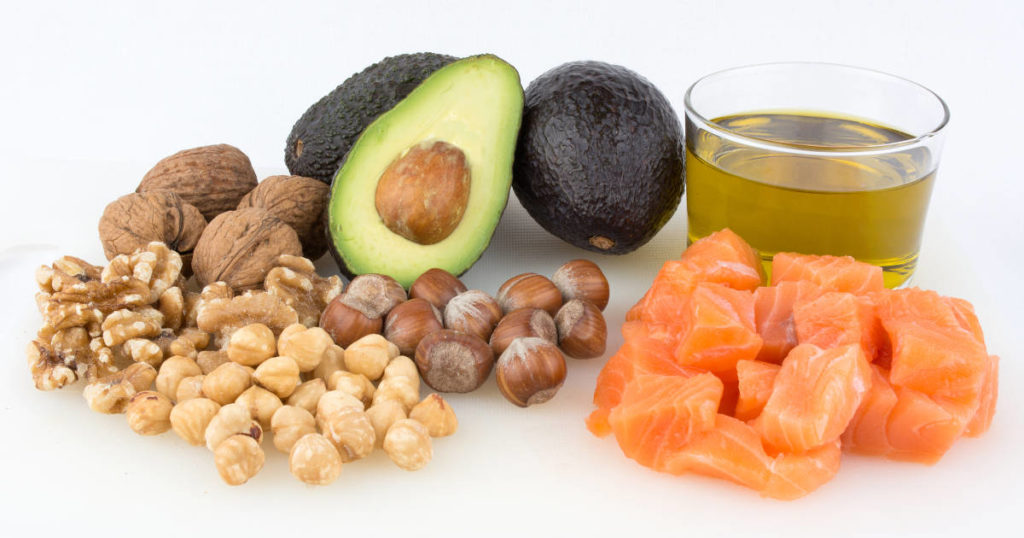Are you walking around on a low simmer? The good news is, once we understand what causes inflammation and see how quickly our actions can either fan or cool the flames, we can begin to make better choices every day that bring us back into balance.
Inflammation found in the body is typically a normal and healthy response to injury or to defend against foreign invaders. When the inflammation is due to an injury, sometimes we can visually see it, and sometimes we can feel it when the skin is hot to the touch as well as experience the pain that comes along with it. This heat is the body’s way of getting more nourishment and more immune activity (WBC) into an area that needs to fend off infection or heal (1). But inflammation isn’t always helpful. In great amounts over a long period of time, it can be a real problem. Whole-body inflammation is a chronic, low-level inflammation. Evidence shows that over time this kind of systemic inflammation sets the stage for many serious diseases including but not limited to rheumatoid arthritis, fibromyalgia, stroke, several cancers, lupus, migraines, dementia, Chron’s disease, and heart disease (2).
Would you be surprised if I told you that most of this systemic inflammation starts in your gut? Intestinal bloating, frequent bouts of diarrhea or constipation, gas and pain, heartburn and acid reflux are early signs of an inflamed digestive tract. Keep in mind these are the early signs and they should not be ignored.
See, your gut is where more than 2/3rds of your immune system is; it was designed to eliminate viruses and bacteria in your food before they infect your body. If your gut is inflamed it can’t properly fight off virus and bacteria; leading to inflammation, malabsorption of nutrients, and what is coined leaky gut syndrome, or intestinal permeability. Rease more about this here (Source)
Why do so many of us have this type of inflammation? The modern diet has the majority of us eating an upside-down ratio of fatty acids (omega-3, -6, and -9), too much sugar and carbs, and high levels of wheat, dairy, and other common allergens.
Let’s pull this apart a little bit.
- Sugar-Sugar can seem almost impossible to avoid since it is in just about everything. Many products would surprise you. I recommend watching the documentary That Sugar Film (Free live streaming with Amazon Prime)..it is eye opening. High sugar products like sodas, fruit drinks, candies, pastries, etc. should be avoided. Even grains should be monitored as they turn to sugar and raise blood sugar levels in the body rather quickly. Some healthy substitutes for sugar include stevia (pure), honey, and blackstrap molasses. Keep in mind even these healthy alternative raise blood sugar levels, so moderation is key.
- Oils-Most polyunsaturated vegetable oils like safflower, sunflower, corn, peanut and soy, are high in linoleic acid, an omega-6 essential fatty acid that is actually PRO-inflammation. I recommend healthier fats such as coconut or ghee when cooking.
- Gluten/Refined Grains– For many of us, if not all of us, gluten is the wicking that lights a fire of inflammation in our body. Anyone suffering from celiac disease knows how inflammatory wheat can be. The kicker is that many more people likely suffer from an intolerance than true celiac disease. Many do not have the more common symptoms, which are gut symptoms like diarrhea, constipation, and bloating. Systemic simmering of inflammation can show itself in many other ways….or it can be somewhat silent. Have you ever heard the phrase: “Inflammation-The Silent Killer?” We know there is much controversy as to why wheat is such an issue. It is not my intention to try to convince you what I believe, but I will say I know a number of people who can eat bread and pasta in Italy with no issue, but come home to very different reactions to “America’s wheat”. Food for thought.
- Dairy– One of the most inflammatory foods, second only to gluten. It causes inflammation in a large percentage of the population, resulting in digestive issues such as bloating, gas, constipation, and diarrhea. You do not need to be lactose intolerant for dairy to cause inflammation in your body. Dairy that is raw or not heat pasteurized can be very different then conventional dairy in regards to is health benefits as well as reactions in the body. For these reasons, my family tries to stay away from conventional dairy as much as possible.
- Meat-Not all meats are created equal. Organic antibiotic free grass-fed meat is the only meat I recommend. Conventionally raised animals are fed GMO grains, pumped full of antibiotics and as a result, the meat is extremely high in the inflammation-promoting Omega 6, rather than the Omega 3 rich pasture raised counterpart. Do not be tricked by food labeling, look for 100% grass-fed and organic.
Another big cause of chronic inflammation in the body is…..CHRONIC UNRELENTING STRESS! When you are under chronic stress and cortisol is constantly flowing at high levels, your immune system lowers and you are more susceptible to illness and you guessed it—chronic inflammation. We all need to work to naturally decrease inflammation in the body and minimize stress.
I will not cover these in this particular article, but there are other causes of inflammation in the body such as: overuse of antibiotics, infection, and hormonal imbalances. Here is an article that goes into more detail about these areas.
So how do we decrease inflammation in the body?
1.Consume more olive oil, fish, and nuts. The Mediterranean-style diet based on fruits, vegetables, nuts, and olive oil (organic) can lower inflammation. The reason being is the high amount of omega-3 fats in these foods. Omega-3 fats bring the inflammation down- omega-6 raises it, fuels it. Read more here on the anti-inflammatory benefits of Omega 3’s (3).

Photo Credit: Everynutrient.com
2.Get active. Exercise a great way to lower inflammation without any side effects. Our bodies were meant to be active!
3.Get enough sleep. Some reports state to get a minimum of 7 hours of sleep a night. That is a good goal.
4.Reduce stress. High levels of stress hormones can lead to the release of excess inflammatory chemicals. Stress reduction is perhaps more important than any other thing I have mentioned, even above your diet. Essential oils can go a long way to assist in calmer moods, but working hard on handling what is important and leaving the rest behind is something to work towards every day.
Here is one of my favorite blends to help calm me. This amount of drops is suitable for a 400ml water reservoir diffuser, adjust accordingly:
Lavender Lavandula angustifolia 4 drops
Ylang ylang Cananga odorata 3 drops
Sweet Marjoram Origanum majorana 2 drops
Neroli Citrus aurantium 1 drop
Herbs to focus on. Incorporating turmeric, ginger, holy basil, cinnamon, cayenne, and garlic into your daily diet is important to combat inflammation. (As I do not know your medical history, make sure you do not have any contradictions to these herbs before consuming)
Remember, sometimes you may not have what is considered typical ‘symptoms’ of chronic inflammation. If you are a pain sufferer or are suffering any disease’ ending in ‘itis’, you need to address the inflammation in your body.
If you think you might have a food sensitivity, I recommend going on an elimination diet for two weeks to see how you feel. You may find that avoiding certain foods restores more than just your digestive health. Countering chronic inflammation takes a combination approach because it arises from a combination of causes. The great news is we have so much more control than we realize — if we understand how our choices affect our health, we can do something about it. Knowledge is power-to your health!
References
(1) Inflammation: Causes, Symptoms & Anti-Inflammatory Diet. Retrieved from https://www.livescience.com/52344-inflammation.html
(2) Chronic, Subtle, Systemic Inflammation. Retrieved from https://www.painscience.com/articles/inflammation-chronic-subtle-systemic.php
(3) Omega-3 Fatty Acids. Retrieved from https://www.umm.edu/health/medical/altmed/supplement/omega3-fatty-acids
Please note that I am not a medical practitioner. The content of this website is provided for general informational purposes only and is not intended as, nor should it be considered a substitute for, professional medical advice. Do not use the information on this website for diagnosing or treating any medical or health condition. If you have or suspect you have a medical problem, promptly contact your professional healthcare provider. By using this website, you assume full responsibility and liability for your own actions.





